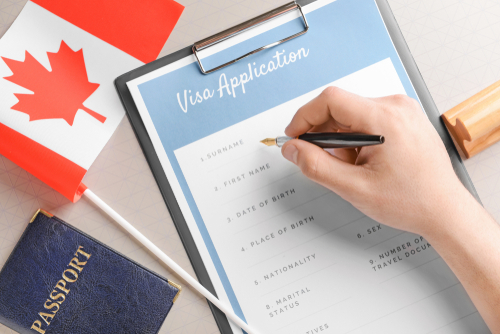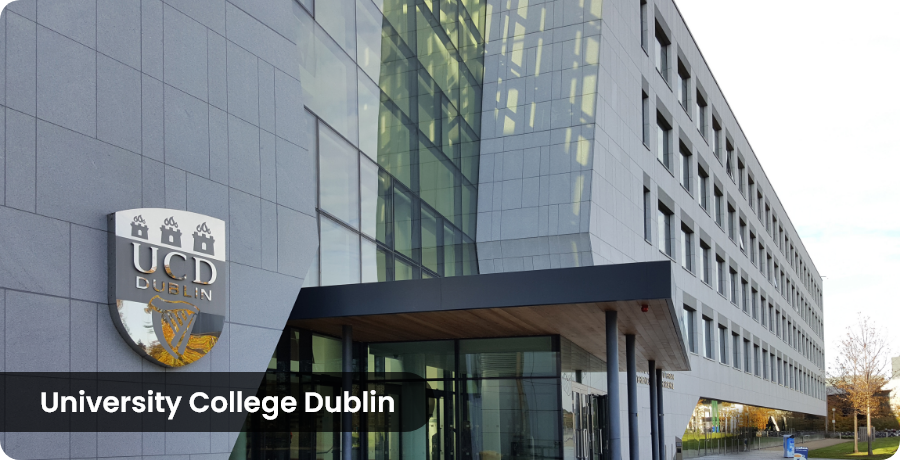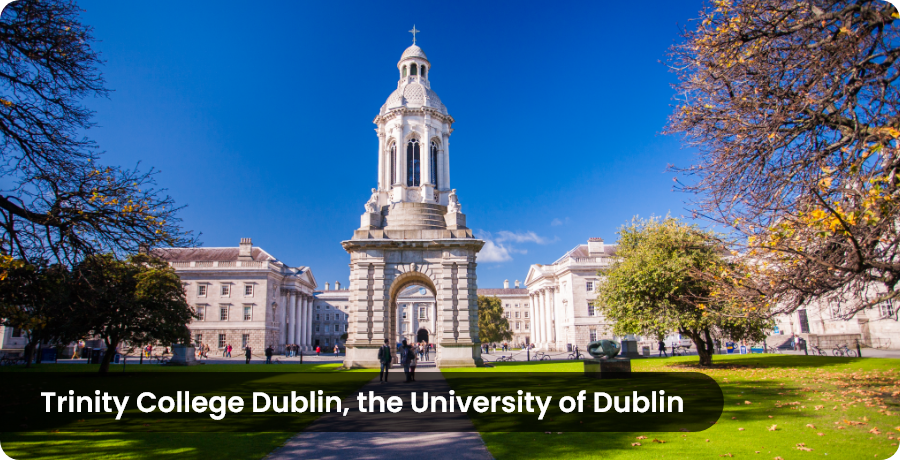Ireland has emerged as one of the most preferred countries for international students in recent years. As a country, Ireland has always been associated with a rich culture and a magnificent history. What makes a lot of students choose Ireland over other countries is the fact that it serves as the home to a large number of educational institutions offering a wide variety of resources.
Who Should Apply and When to Apply for Student Visa to Ireland
Anybody who wishes to study in a college or university in Ireland can apply for a student visa. Having some idea about the visa process in Ireland beforehand would be helpful. The authorities provide a student visa to those planning to opt for an educational course that will last more than three months.
A student visa can be applied for by an individual three months before they intend to travel to Ireland. A student should remember a few important things before going through this process. If they are planning to visit another state before landing in Ireland, they must have the visa for that state at their disposal before sending out an application for an Irish visa.
A Note on Conditions to Check Before Applying Student Visa to Ireland
An international student who plans to study in Ireland must fulfill a few important conditions. Those planning to opt for a degree program course will have to prove that they have come to Ireland to be a part of a full-time educational course.
The student will also have to show the letter of acceptance they received from the college or university where they will go to Ireland to study. This letter of acceptance shall confirm that the applicant has been accepted and will be enrolled in a full-fledged course offered by the college.
The applicant should have documents or receipts serving as proof that they have paid the college fees. If the fee is under €6,000, the student must pay the full amount in advance. If the fee happens to be higher than €6,000, the student will have to pay €6,000 in advance and can pay the rest of the fee later.
Many international students plan to take up casual or part-time employment to fund their education while studying abroad. Educational institutions in Ireland and the authorities allow students to engage in part-time employment. However, An international student would not be allowed to take up a full-time job or start a business while they are in Ireland on a student visa.
Every international student who plans to study in Ireland is expected to get private medical insurance. Students, however, get a few options while getting medical insurance. They could either opt for personal medical insurance or get insurance via a group scheme offered by the university.
Various Types of Study Visas in Ireland for International Students
While it is common knowledge that an international student would have to apply for a student visa to study in Ireland, many aspirants do not know that student visas are divided into multiple categories.
Suppose a non-EEA resident plans to pursue an educational course in Ireland. In that case, they must enroll in one of the full-time courses featured on the Interim List of Eligible Programs or ILEP. Students must carefully review the immigration rules specified for non-EEA students before making their first move.
The visa type a student must apply for greatly depends on the course duration they wish to undertake. If a student plans to opt for a short-term course in Ireland, they should apply for a ‘C study visa.’ This visa is ideal for students who plan to do a course that lasts less than three months.
On the other hand, a ‘D study visa’ is most suitable for somebody interested in a course that will last more than three months. A student can also apply for a multiple entry visa if they earlier had access to single entry cards and have fulfilled all the requirements for the same. With a multiple-entrance passport, a student can visit the country multiple times.
Comprehensive Overview of the Necessary Supporting Documents
An international student must submit many documents while applying for a student visa to Ireland. All the documents they submit are expected to be in their original form and should feature text written in English.
One of the documents an international student has to submit while applying for a student visa is a letter of acceptance. This particular document is provided to the student by a recognized college or university they have been admitted to. It should be a full-time course packed with fifteen hours of weekly study time.
The applicant has to appear for an English language proficiency test to get a visa to study in Ireland. Their score on the test would give the authorities an idea about whether the applicant is proficient enough in English to feel comfortable being a part of a course or program taught in English.
The student also has to offer evidence or proof that they have received private medical insurance. If there are any gaps in the student’s educational history, they should be able to explain or justify the reason behind them. The student must confirm that they will return to their ‘country of permanent residence’ once the course is over.
![What Are The Visa Processes For International Students To Ireland]()
Student Visa Rejection and Appeals for International Students
While applying for a student visa to Ireland, an applicant often worries about the possibility of rejection of the visa application. When applying for an Irish visa, the rejection rate is just about 1-4%. Therefore, the chances of an international student getting a visa are very high.
Duration to Get Visa in your Hands to Study in Ireland
International students interested in getting a student visa to Ireland would benefit greatly by checking the eligibility requirements laid down by the Irish Naturalisation and Immigration Service (INIS). It would also enlighten them about Ireland visa processing time.
The process of a student visa getting approved takes close to eight weeks. There is a possibility of the process taking longer as well. It would be a good idea for an international student to apply for an Irish student visa 3-4 months before they plan to leave.
Employment Access and Opportunities for International Students with Student Visa
International students, who are pursuing a full-time course for at least one year, would not require a work permit to be employed in Ireland. Students, who have immigration stamp 2 permission, shall be allowed to work for 40 hours every week during June, July, August, and September. During the other months, they will be permitted to work 20 hours weekly.
When the Stamp 2 immigration permission a student holds expires, they will not be allowed to work. Students must be mindful of this while seeking casual or part-time employment opportunities.
Degree program students can look for casual or part-time work opportunities when registered with the Garda National Immigration Bureau or GNIB. Those who have taken up a recognized program can also seek employment opportunities that lead them to a qualification that the Minister approves for Education & Skills.
Before looking for work opportunities in Ireland, international students must prove that they are putting in 15 hours every day into their studies. They will also have to prove that they receive tuition between 8 am and 6 pm every week for at least 25 weeks a year.
Once a student is sure that they fulfill all conditions or requirements to seek employment opportunities in Ireland, they should work towards getting a Personal Public Services Number or PPS number. This is important as an employer in Ireland can only pay employees with a PPS number. The funds or wages a student is entitled to for their work will be transferred to their Irish bank account.
International students must also adhere to the guidelines stated by the Pay Related Social Insurance (PRSI), Universal Social Contribution (USC), taxation requirements, and employment laws. Before hiring a student, most employers ask them to go through a trial period. Once the employer is confident about the student’s skills and competence, they are hired permanently. The minimum wage in Ireland is €10.50 per hour.
International students studying in Ireland also get a lot of internship opportunities. Often, they get to do an internship as a part of the program they undertake. They can seek internship opportunities on their own as well. However, there are certain things they need to be mindful of.
The internship program taken up by an international student cannot be more than 50% of their program’s duration. For example, if a student opts for a three-year course or program, they can expect one and a half years of work placement. Most educational institutions work towards ensuring that students get the kind of work placements that are in sync with what they are studying.









.png)

.png)
